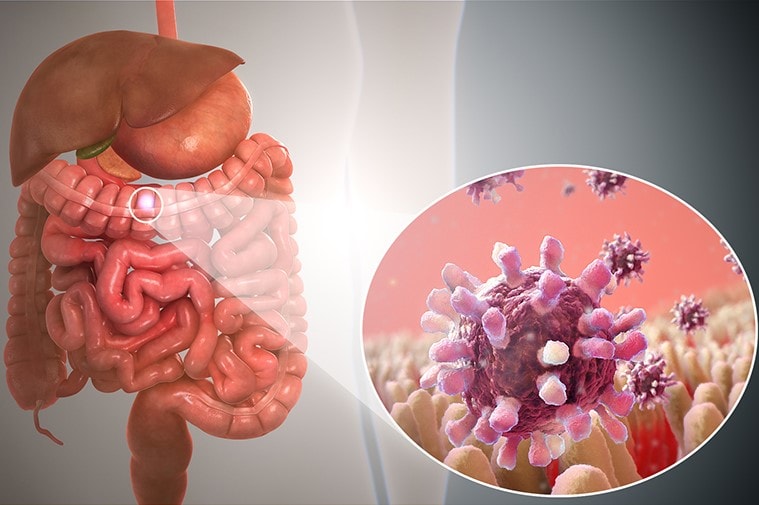Gastroenteritis Vs. Rotavirus: Key Differences and Treatment Approaches

Are you confused about the differences between gastroenteritis and rotavirus? Do you want to know the best treatment approaches for both? Look no further!
In this article, we’ll break down the symptoms, causes, and complications associated with gastroenteritis and rotavirus. We’ll also explore the various treatment options available and provide prevention strategies to keep you and your loved ones healthy.
So, let’s dive in and unravel the mysteries of gastroenteritis and rotavirus together!
Key Takeaways
- Gastroenteritis can be caused by viral, bacterial, and parasitic infections, while rotavirus primarily causes illness in infants and young children.
- Gastroenteritis can be transmitted through close contact with infected stool or vomit, contaminated objects, and contaminated food or water. Rotavirus is primarily transmitted through person-to-person contact with infected stool or vomit, as well as contaminated objects and contaminated food or water.
- Seek medical attention and provide a stool sample for testing to accurately diagnose gastroenteritis and rotavirus. Laboratory tests on the stool sample can confirm the presence of rotavirus antigens or genetic material.
- Complications of both gastroenteritis and rotavirus include dehydration and electrolyte imbalances. Treatment options include oral rehydration solutions, antiemetics for nausea and vomiting, and probiotics to restore gut flora balance. Vaccination is the most reliable method for preventing these illnesses.
Symptoms of Gastroenteritis and Rotavirus
If you’re experiencing symptoms of gastroenteritis or rotavirus, you may notice diarrhea, vomiting, and stomach cramps. However, there are some key differences in the severity, duration, and treatment approaches for these two conditions.
Gastroenteritis, also known as the stomach flu, is usually caused by a viral or bacterial infection and can last anywhere from a few days to a week.
On the other hand, rotavirus is a specific type of viral infection that primarily affects infants and young children. It is highly contagious and can lead to severe dehydration if not treated promptly.
One common misconception is that gastroenteritis and rotavirus are the same thing, but rotavirus is just one of the many viruses that can cause gastroenteritis.
It’s important to consult a healthcare professional for accurate diagnosis and appropriate treatment.
Causes and Transmission of Gastroenteritis and Rotavirus
The causes and transmission of gastroenteritis and rotavirus are important to understand. Here’s what you need to know:
- Causes of gastroenteritis:
- Viral infections: Rotavirus, norovirus, and adenovirus are common culprits.
- Bacterial infections: Salmonella, Campylobacter, and E. coli can cause gastroenteritis.
- Parasitic infections: Giardia and Cryptosporidium can also lead to this condition.
- Transmission of rotavirus:
- Person-to-person: The virus spreads through close contact with an infected person’s stool or vomit.
- Contaminated objects: Touching surfaces or objects contaminated with the virus and then touching your mouth can transmit the infection.
- Contaminated food and water: Consuming food or water contaminated with the virus can cause infection.
Understanding the causes and transmission of gastroenteritis and rotavirus is crucial in preventing its spread and taking necessary precautions.
Diagnosing Gastroenteritis and Rotavirus
To diagnose gastroenteritis and rotavirus, you should seek medical attention and provide a stool sample for testing.
The first step in the diagnostic process is to visit a healthcare professional who will perform a differential diagnosis. This involves ruling out other possible causes of gastrointestinal symptoms, such as food poisoning or bacterial infections.
Laboratory tests are then conducted on the stool sample to determine whether the cause is gastroenteritis or rotavirus. These tests can detect the presence of rotavirus antigens or genetic material, confirming the diagnosis.
It is important to seek medical attention and undergo these tests to ensure an accurate diagnosis and appropriate treatment. Remember to follow the guidance of your healthcare provider to manage your symptoms and prevent the spread of the infection.
Complications Associated With Gastroenteritis and Rotavirus
Complications such as dehydration and electrolyte imbalances can occur with gastroenteritis and rotavirus. It’s important to stay hydrated and replenish your body with fluids and electrolytes. Effective management of these complications is crucial to prevent long-term effects.
Dehydration can lead to dizziness, weakness, and even organ failure if left untreated. To manage complications, it is recommended to drink plenty of fluids, such as water, clear broths, and oral rehydration solutions. These solutions contain a proper balance of electrolytes, which are essential for maintaining the body’s fluid balance.
Additionally, it is important to rest and avoid strenuous activities to allow the body to recover. If complications persist or worsen, it is advised to seek medical attention promptly to prevent any potential long-term effects.
Treatment Options for Gastroenteritis and Rotavirus
Make sure you follow your doctor’s advice and take the prescribed medications to effectively treat and manage your symptoms of gastroenteritis and rotavirus. While there are alternative treatments and home remedies that some people may consider, it is important to remember that these should not replace medical advice and prescribed medications. Here is a table outlining some of the common treatment options for gastroenteritis and rotavirus:
| Treatment Options | Description | Effectiveness |
|---|---|---|
| Oral rehydration solutions | These solutions help replace lost fluids and electrolytes due to vomiting and diarrhea. | Highly effective |
| Antiemetics | These medications can help relieve nausea and vomiting. | Moderately effective |
| Probiotics | These are beneficial bacteria that can help restore the natural balance of gut flora. | Some evidence of effectiveness |
Remember to consult with your healthcare provider before trying any alternative treatments or home remedies to ensure they are safe and appropriate for your condition.
Prevention Strategies for Gastroenteritis and Rotavirus
Remember, the best way to prevent gastroenteritis and rotavirus is by practicing good hand hygiene. This includes washing your hands thoroughly with soap and water for at least 20 seconds.
In addition to hand hygiene, there are several other prevention strategies you can implement to reduce your risk of contracting these illnesses.
- Maintain a clean living environment. This involves regularly disinfecting frequently touched surfaces, such as countertops and doorknobs. It’s also important to ensure proper food handling and storage to prevent contamination.
- Avoid close contact with infected individuals. Stay away from people who are sick, especially if they are experiencing symptoms of gastroenteritis or rotavirus.
It’s important to note that while prevention strategies are effective in reducing the risk of gastroenteritis and rotavirus, vaccination remains the most reliable method for protection. Vaccination efficacy has been proven to significantly decrease the incidence and severity of these illnesses.
Outlook and Prognosis for Gastroenteritis and Rotavirus
To get a better understanding of your prognosis for gastroenteritis and rotavirus, it’s important to consult with your healthcare provider. Gastroenteritis, commonly known as the stomach flu, is a common illness in children that usually resolves within a few days with proper care and hydration. However, the outlook for gastroenteritis in children can vary depending on the severity of the infection and the overall health of the child. On the other hand, rotavirus is a leading cause of severe diarrhea in infants and young children. While most children recover fully from a rotavirus infection, it’s important to note that there can be long-term effects such as malnutrition and delayed growth. Proper medical evaluation and treatment are crucial to ensure a positive outcome for both gastroenteritis and rotavirus infections.
| Gastroenteritis | Rotavirus Infection | |
|---|---|---|
| Outlook | Varies | Most recover fully |
| Effects | Short-term | Long-term effects |
Frequently Asked Questions
Are There Any Natural Remedies or Alternative Treatments for Gastroenteritis and Rotavirus?
There aren’t any natural remedies or alternative treatments for gastroenteritis and rotavirus. It’s important to consult a healthcare professional for appropriate treatment options.
Can Gastroenteritis and Rotavirus Be Contracted From Pets or Animals?
Yes, gastroenteritis and rotavirus can be transmitted through contact with pets or animals. It’s important to be cautious and practice good hygiene to minimize the risk. Symptoms and severity may vary depending on the source of gastroenteritis.
Is There a Vaccine Available for Gastroenteritis and Rotavirus?
Yes, there is a vaccine available for gastroenteritis and rotavirus. You can also explore natural remedies or alternative treatments for these conditions.
How Long Does It Typically Take to Recover From Gastroenteritis and Rotavirus?
Recovering from gastroenteritis and rotavirus can take a few days to a week. You may find relief by trying natural remedies like staying hydrated, eating bland foods, and getting plenty of rest.
What Are the Long-Term Effects of Gastroenteritis and Rotavirus on the Digestive System?
Long-term complications of gastroenteritis and rotavirus can have a lasting impact on your digestive system. These include changes to your gut microbiome, which can affect your overall gut health and lead to gastrointestinal issues.









